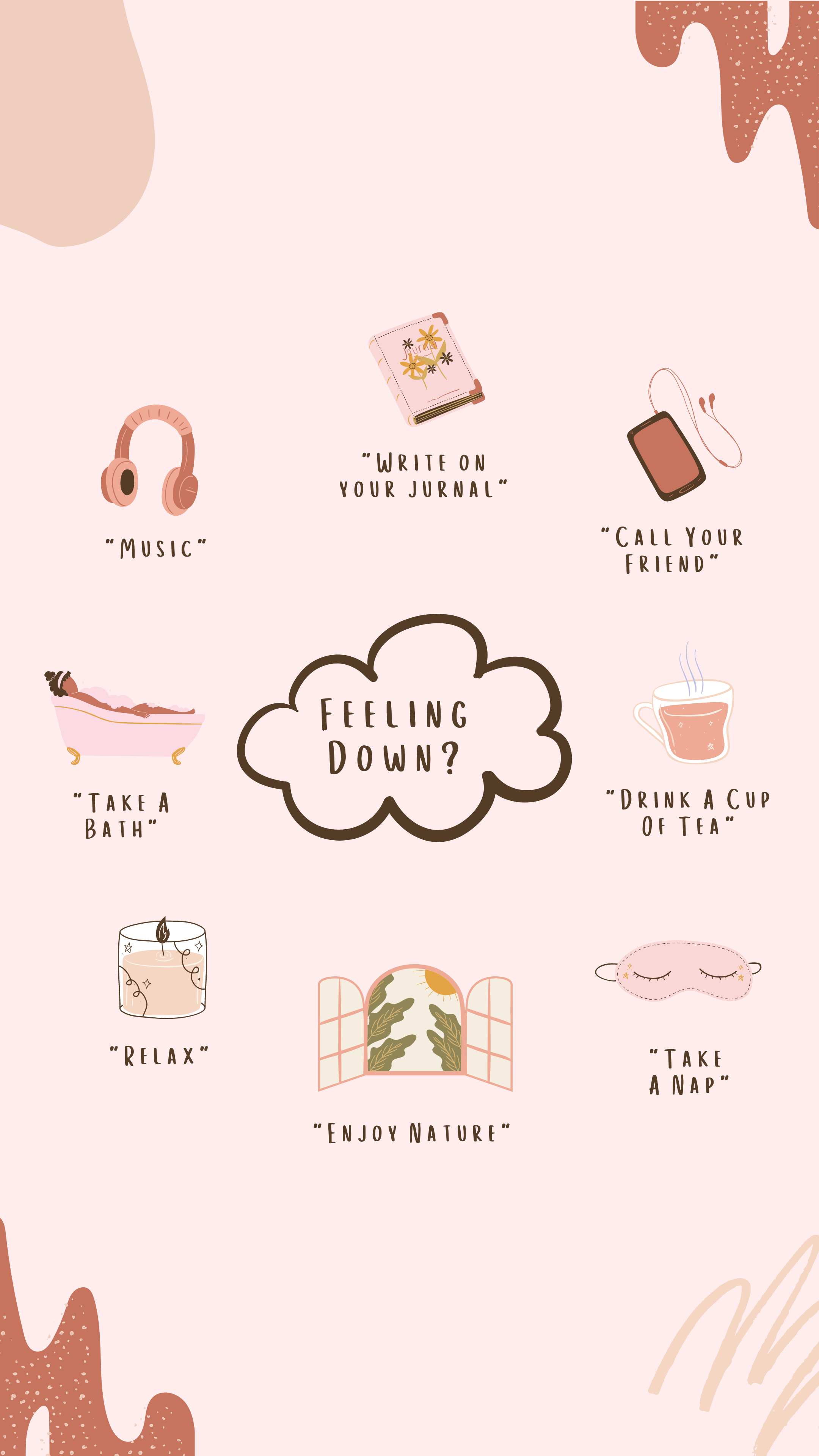Support for Carers of Children with Special Needs
Practical tips for finding help and support.
Select a topic by clicking the button below or scroll down to explore and discover how to view yourself.
Being a Carer
If you have children, you’ll know that taking care of them is an immensely important responsibility and requires a lot of resources and effort. If your children have additional needs, you’ll know that this is true even more so. As a carer of a child or person with a disability, you may need a lot more resources than the average parent, including extra facilities at home, more money for health care, extra time for appointments and a number of other necessities. If you are experiencing this situation, know that you are not alone. Almost one fifth of the Australian population are living with disabilities, and there are 2.65 million carers - meaning that 1 in 10 Australians are carers (ABS). If this is you, we are here to help you.
We know that being a carer can be so rewarding; it’s delightful to see your children’s personalities grow, to see them find independence and to help them achieve goals. However, it can also be extremely challenging; the daily challenges you face can pose a big risk to your own mental and physical health. As a carer, you might experience things like:
Feeling stressed. Looking after people with disabilities can be time consuming and can cost a lot of money. It’s normal to feel stressed about your finances, your lack of time or fear of the future.
Feeling isolated. You may feel like no one understands what you go through as a carer; this can leave you feeling isolated and helpless.
Feeling frustrated. Supporting people with additional needs can be full of uncertainties and unforeseen challenges. Sometimes, you may feel like you’re going in circles or not getting anywhere.
Feeling like there’s not a lot of support for you. When looking at what support is out there, it can seem like there are a lot of services for people with disabilities, and not a lot for carers. It’s normal that this can cause you to feel isolated, frustrated and stressed!
You Deserve to be Supported!
We want you to know that it is very normal to feel all of the above things, plus more. Being a carer is an incredibly brave and important thing, and you are making such a difference. We know that being a carer can be a long-term stress, and more often than not you don’t have time to care for yourself. But we want to encourage you, that YOU are worthy of being cared for too! Following some of our other articles may be helpful for you.
Some self-care tips for you
We can imagine you will be busy with looking after your children, but it is also important to look after yourself. You don’t even need to spend much time on self-care. We would like to introduce some practical tips to you.
What are the best things that happened today? At the end of the day, when you are lying in bed, it can be a really great time for you to have a little chat with yourself - even just for 5 or 10 minutes. Think of the things that bring you joy throughout the day. Having a good mood before you sleep could bring you more passion for the next day!
Make sure you have someone to talk to. Just like you have someone that you care about, there will always be someone who cares about you! Find some time to catch up with them, even if it’s once a week or even a month. We can guarantee you they will be happy to hear your voice or to spend time with you, and you won’t believe how much energy they can bring you.
Build up a daily routine for yourself. Building up a routine for looking after or rewarding yourself might sound time consuming - but it doesn’t have to be! It can be little things during the day, like making a breakfast you enjoy, listening to nice music while you are doing some work or a short pep talk when you wake up in the morning. There are so many small things that are easy to commit to and can turn your day around!
Talk to a therapist. Last and the most important, Please take care of yourself. Being a caregiver can be highly stressful and overwhelming. If you are feeling noticeably unmotivated, feeling anxious or not interested in the events that you used to be passionate about, then talking to a professional would be a great benefit to you.
For more information on supporting yourself while caring for someone, look here.
Organisations
Remember, you don’t have to do this journey alone. Knowing what support is available to you means you can get help with taking care of your loved ones and have a backup for emergency respite care. When unexpected situations arise, some services can provide respite care and will work alongside you to care for your children. Importantly, there are also services available for you. Carer groups are there to support you and give you a space to share what you’re going through with others that are on the same journey; you might even be able to help another carer with what they’re going through. If you feel overwhelmed, it’s important that you reach out for support. You can do this journey alone, but it’s so much easier to do it with others, both for you and your child.
Here are some of the services that may be available for carer support.
The Extraordinary Initiative - Providing holistic, proactive and sustainable support for people with disabilities and their families. Contact them via info@theei.com.au
Carer gateway (1800 422 737; Mon-Fri; 8am-6pm) - Free counselling. Same number for 24/7 emergency respite.
Lifeline (13 11 14; Mon-Fri) - Support for anxiety, depression and free counselling. 24/7 for crisis support.
Anglicare (1300 610 610) - Counseling (Family and individual), mentor.
Support for carers (QLD) - A website with a list of available services for all carers, including parents, grandparents, elder carers, young carers, carers with diverse cultural backgrounds.
Carer gateway Forum - A website for carer share their experience or thoughts
Arafmi (QLD, 24/7, 07 3254 1881, 1300 554 660) - supports those who care for, or about, someone with a mental illness. It offers phone support, counselling, family respite, support group meetings and workshops for carers.
Young Carers
In some cases, people might need to look after children or need to help with looking after their siblings at a young age. Despite being young, they are expected to take the same responsibilities as an adult. As a young carer, it’s incredibly important for you to look after your own health and wellbeing - you can do this by talking to someone who understands or is going through a similar situation. Here are some available supports for young carers.
Young carers network (All states, 02 6122 9900, Mon-Fri, 9am-5pm) - work to enable young carers to engage with each other through a range of opportunities to share and connect.
Well ways (All states, 1300 111 400; Brisbane, 07 3720 8155; Mon-Fri, 9am-5pm) - Providing individual support for physical and mental health needs, to promote resilience and coping skills, peer support and some activities for connecting carer groups.
Association for children with a disability (VIC, 03 9880 7000, Mon-Fri, 9am-5pm) - Help young carers have better understanding about disabilities, workshop for group support.
Siblings Australia (All states, 08 8253 4937, Mon-Fri, 9am-5pm) - Assisting parents to better support siblings, workshop for connecting siblings.
How Can I Help Carers Around Me?
You might know someone who is a carer and you want to do something to help. Here are a few ways that you can support them!
Keep them company. It’s important to be patient with yourself and others when you’re experiencing or hearing about a tough situation. Looking after children can be a long-term responsibility, and so it’s important that you check in with your friend or someone you care about frequently. Although what you can do might be little, it can reduce people’s feelings of helplessness and isolation. A little goes a long way!
Be a good listener. While keeping the carers company is an important support, good listening skills are essential. As the person experiencing the issues or having a hardship, the carer needs to feel like they are the expert of their situation, and feel validated that they are trying their best to improve it. Good listening skills are helpful for you to understand their needs, and allows you to work through the problems together.
Get help from the professionals. In general, carers are aware of the professional support available to their child, including primary health care and organisations supporting people who are living with disabilities. However, it is also important to remind them to look after themselves. The information above and the recommended services might be helpful for the carers around you.
Apps
Books
Growing up disabled in Australia - Carly Findlay
The boy at the back of the class - Onjali Q. Rauf
Disability rights handbook - Ian Greaves
Illness, disability and caring - Bernadette Meaden
Beyond disability - Gerald Hales
Faith-based resources
PRAYER
A prayer for refreshing: Lord, we lift up parents and caregivers of children with disabilities. Refresh them. Give them strength to press on each day. For families living in poverty, lead them to economic opportunities to provide each member with the resources to survive and thrive. Amen
A prayer for encouragement: Lord, we are hoping the caregiver for children with disability will not be living in the fear of uncertainty. Give them the strength to reach out to the community and to have access to the best support. Through the journey of supporting their children, please be their guide when they feel lost. Amen
Scriptures
You and the person you are caring for have a body and a soul, you need to remember these two aspects of who we are because we are prone to extremes. (John 3:6)
The physical affects the spiritual for better or for worse. But you can remind the person you are caring for that Jesus continues his inward renewal in our lives even as our bodies weaken. (Corinthians 4:16)
For You, O Lord, are a shield about me, my glory and the lifter of my head. (Psalm 3:3)
Resources
Australian Bureau of statistics, Disabilities, aging and carers, Australia: Summary of findings. https://www.abs.gov.au/statistics/health/disability/disability-ageing-and-carers-australia-summary-findings/latest-release#key-statistics
Synapse, Support needs for carers. https://synapse.org.au/fact-sheet/support-needs-of-carers/
SBS, Challenges and benefits of being a carer. https://www.sbs.com.au/language/english/audio/challenges-and-benefits-of-being-a-carer
This website is provided for general information only. It is presented in good faith, however we make no representation or warranty of any kind, express or implied, regarding the accuracy, validity, reliability, availability or completeness of any information on the site. We encourage you to conduct your own research and enquiries. This website provides links to external websites. It’s Not Ok does not control and accepts no liability for the content of those websites or for any loss arising from use or reliance on those websites. It’s Not Ok does not endorse any external website and does not warrant that they are accurate, authentic or complete. Your use of any external website is governed by the terms of that website.








